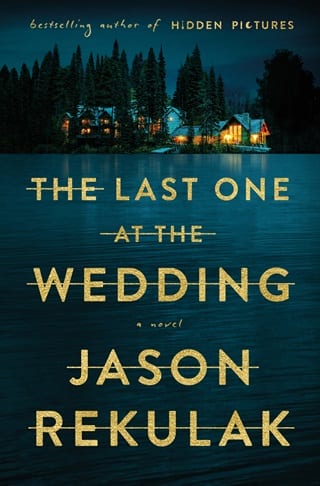Chapter 2.
2.
About an hour later, my supervisor at UPS called to express his condolences. He reminded me that I had a massive bank of paid sick days and he encouraged me to use them, so I could help my daughter with her bereavement. I assured him that Maggie was surrounded by friends and the best thing for me was getting back to work. I promised to report first thing in the morning and drive my usual Monday route.
Now, if I’d been paying any attention to the rest of the world, I might have noticed the heat wave in the forecast. The mayors of New York City and Philadelphia were already declaring states of emergency and encouraging residents to stay indoors, stay hydrated, and look after their elderly neighbors. Normally I prepare for these shifts by filling an Igloo cooler with ice packs and sliced watermelon and a couple of navel oranges, but Monday morning I left my house with my usual ham-and-cheese sandwich, an apple, and a thermos full of water.
I got my first inkling that it wasn’t a normal day when I arrived at the package facility and found the managers passing out sun hats and cold sleeves and extra bottles of Poland Spring. Most UPS vehicles don’t have air-conditioning, so we were all reminded to pace ourselves and take frequent breaks. The guy who loads my truck is a Korean kid named Jun, and as I did my usual walkaround he warned me to be care ful. “You got a lot of dog food today, Frank.” “Dog food” is warehouse slang for any absurdly heavy or irregularly shaped item that people buy online—mattresses, cartons of printer paper, flat-pack furniture, and (surprise!) giant sacks of dog food. I thanked Jun for his heads-up and tipped him a little extra, because loading all that dog food is hard work for him, too.
I left my center at eight-thirty, and by nine o’clock I was soaked in sweat. Outside my truck, the humidity was stifling—and inside my truck, a windowless metal box baking hotter and hotter under the rising sun—it was unbearable. Every time I went in back for a package, my pulse skyrocketed and sweat streamed down my forehead, stinging my eyes. And Jun was right: my deliveries included a shit-ton of dog food. Nine of my customers had purchased window-unit air conditioners to cope with the heat wave, and I had to hump these enormous boxes all the way up their long suburban driveways. My back was holding up okay, but after the third or fourth air conditioner I felt my hands and arms cramping up, a telltale symptom of heatstroke. So I stopped at McDonald’s and rested in their air-conditioned dining room and drank a large orange Hi-C, a quick break to regulate my body temperature. It was not quite eleven o’clock in the morning, and I still had another 139 parcels to deliver.
I’d hoped that work would keep my thoughts off Maggie, but I couldn’t stop worrying about her. Was she still in Osprey Cove? And where would she live, now that Aidan was gone? Catherine Gardner had been so quick to tell me the truth—but what would happen if she ever confessed her sins to someone outside the family? Tammy claimed that wealthy criminals always got off scot-free, but I could name a dozen recent examples to the contrary: Jeffrey Epstein. Harvey Weinstein. Bill Cosby. The Gardners may have seemed invincible, but I wasn’t so sure. I drove through a four-way intersection and my travel computer beeped in error, warning me that I’d missed my turn and directing me to an alternate route. A tiny oversight that added six minutes to my workday.
By twelve-thirty my arms were cramping up again and my heart was revving like an engine stuck in neutral. I knew that I ought to stop and cool off, but there was no place to pull over. I was on a two-lane highway in a state forest with shallow ravines on both sides of the road. I had traveled this route many thousands of times, but that day the forest looked strange and unfamiliar. Like my windshield was filtering the view and saturating all the colors. I didn’t realize it at the time, but this was probably the moment when I started to lose consciousness.
And then, in the distance, I saw a car parked on the side of the road, hazard lights flashing. A bright red Honda Civic. There wasn’t much of a shoulder, so most of the vehicle was resting in my lane. A woman knelt at the back of the car, cranking a jack and raising the rear left wheel off the pavement. A man waited nearby, holding a spare tire, and my broiling brain recognized these people as Dawn Taggart and Aidan Gardner. (Wasn’t this precisely how they met? Changing a tire on the side of the road?) I slowed my speed and drifted into the opposite lane to get around them. I craned my neck to take a better look at their faces, and my truck kept on drifting.
My left front tire went off the asphalt and into the grassy ravine and the soft earth immediately gave way. The steering wheel spun out of my hands and the truck pivoted sideways. Everything in my windshield turned clockwise, like the world was revolving around me. Then the glass exploded and I raised my hands to shield my face. The safety belt cut into my breastbone, pinning me to my seat. I clenched my hands into fists and braced myself for impact as all my parcels toppled from their shelves and tumbled around and around my truck like socks in the dryer.
 Fullepub
Fullepub 



